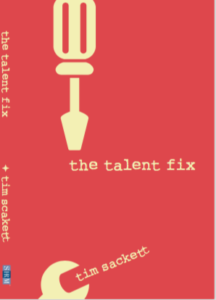So, this summer my son, Cameron, and I started up this series on my blog called, “Career Confessions of Gen Z”. He did an awesome job finding his voice and creating compelling content that was coming straight from the mouth of Gen Z, and not some old washed up blogger, like me, who claimed to know what Gen Z was all about.
I loved it! The audience loved it!
He went back to school, got busy doing school stuff and Career Confessions just sat there.
Another crazy thing happens in HR blogging. If you look at most HR Bloggers, the vast majority are Gen X, older Millennials, some Baby Boomers. So very few are actual Millennials and almost zero are Gen Z. While our executives still like to believe all young employees are still Millennials, we know in HR that Gen Z is the newest generation we need to pay attention to entering our workforces.
So, Gen Z HR and Talent Pros – I need you!
What’s the gig?
HR and/or Talent Blogger for The Project – specifically under the “Career Confessions of Gen Z” series.
How much do you have to write?
Once per month, every 4-5 weeks. Each post would be anywhere from 400-800-ish words, or a video-blog (vlog) 3-5 minutes. The initial project is for 12 months, so if you get invited to join the team, you’ll be asked to write 12 posts in 12 months.
What can you write or speak about?
Anything work or career-related, as long as it’s interesting or entertaining or educational, and hopefully a combination of all three!
Can I do this anonymously?
Hell no! Why would you?! This is your big break and a big platform – let yourself shine!
What do I get for doing this?
Fame mostly. I mean micro-fame, but it’s still fame. You might get invited to attend some HR or Recruiting conferences for free. We can be friends if you’re not super annoying. I’ll tell people you’re awesome. If I find a sponsor for the series I’ll split the cash with you.
How can I apply?
Simple. Send me a writing sample of what you would do on the blog. Don’t suck. Have an opinion. Don’t tell me you first have to run it by legal for approval. Send that sample to: timsackett@comcast.net or just Venmo me $1000 and consider yourself 100% on the team! (jk – don’t do that) Deadline for submissions is December 19th – that’s 2 weeks! So, get going! Invitations will go out on or before January 3rd for those selected to join the team!
HR and TA Leaders – Recruitment Marketing and Employment Branding leaders – this is a great stretch assignment for the Gen Zers on your team for 2019! Send this to them and get them to submit!
I’m looking forward to reading your work!


